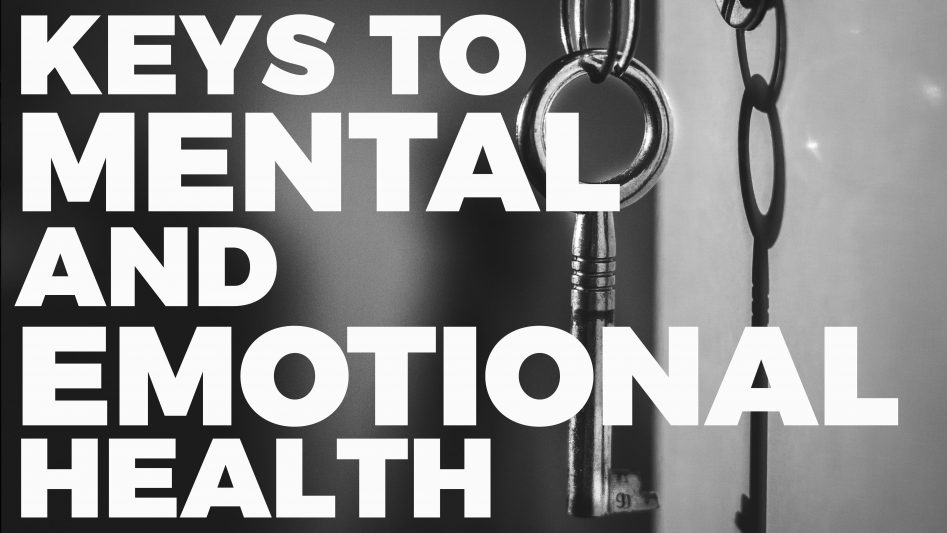One of the most significant challenges facing people today is mental and emotional health issues. According to the mental health charity Mind, the United Kingdom faces a growing problem with mental health related problems.
How common are mental health problems?
- 1 in 4 people will experience a mental health problem of some kind each year in England
- 1 in 6 people report experiencing a common mental health problem (like anxiety and depression) in any given week in England
Suicidal thoughts and self-harm
- 1 in 5 people have suicidal thoughts
- 1 in 14 people self-harm
- 1 in 15 people attempt suicide.
The statistics above are taken from Mind website and present an alarming state with the medical professions overwhelmed. We applaud the professionals and pray for them because we support their work. We ultimately believe that God must be our source for peace, healing, and health.
The great news is that God has a solution for all three. He offers healing for our bodies, the power to renew our minds, and authority over all the power of the Devil.
I also realized is that although God can heal, renew, and deliver, we also have some responsibility for our mental health. You can’t have a sound life with sick thoughts. In the same way that we change our diet and start exercising if we have a physical health issue, we can also make our minds healthier by changing our mental habits. A transformed life is the fruit of a transformed mind, and you are the only one who can change your mind.
One of the most significant passages on mental health can be found in 1 Thessalonians 5:16–18, which says:
“Rejoice always, pray without ceasing, in everything give thanks; for this is the will of God in Christ Jesus for you.” (NKJV). These three “exercises” are key to mental and emotional health; let me explain how.
Rejoice
Notice that the command isn’t to have joy; it is to rejoice. It also wasn’t an instruction to wait until something happens worthy of rejoicing over. Paul instructs the Thessalonians, who were under intense persecution and even having their property ceased, to rejoice. Why? Because rejoicing produces joy. This is probably why James instructed believers to “count it all joy” when you fall into hardships.
What we endure affects our thoughts which affect our mental and emotional health. What scripture indicates is that the practice of rejoicing is an avenue to a healthier emotional and mental state. Rejoicing produces the emotion of joy, gratitude and hope.
Pray
Anxiety can often stem from either a fear of rejection or a control issue–either not taking control of what is yours to control or trying to control something that is not yours to control.
Paul told the Philippians, to:
“Be anxious for nothing, but in everything by prayer and supplication, with thanksgiving, let your requests be made known to God; and the peace of God, which surpasses all understanding, will guard your hearts and minds through Christ Jesus.” (Philippians 4:6–7 (NKJV)).
The first thing prayer does is connect us to God who accepts us unconditionally and completely in His love as Ephesians 1:6 says, “we are accepted in Christ’s love” and 1 John 4 tells us that “perfect love casts out fear.” You don’t need to fear rejection because God eternally accepts you because of His love for you.
I have found that maintaining my connectedness to God is key in dealing with anxiety because it is from that connection that I can feel his love and affection for me, which “casts out fear.”
The second thing that prayer does is it clarifies the boundaries of control. Prayer helps you to see clearly what is ours to control and what you must choose to surrender to God. I also want to point out that surrender is a posture of power when it comes by your choice.
You may not always have the power to control, but you always have the power to surrender. Sometimes the most powerful thing you can do is surrender the things you don’t have the power to control. Prayer is the place where you connect with God, determine what you can control, and by faith, surrender what you can’t.
Give thanks
Paul did not instruct them to be thankful; he instructed them to give thanks. We become thankful by giving thanks. Science tells us that thanksgiving produces serotonin in our brain, and gratitude produces dopamine.
These are both neurotransmitters that stimulate the pleasure and reward centre of our brain and give us all the “feel good” sensations. They also give us motivation and drive. Giving thanks changes your brain in that the more you give thanks, the more thankful you become. This is powerful because being thankful creates hope, especially for a believer.
The more I thank God for all I have and all He has done, the more confident I become in Him working my current situation out for my good. When I give thanks, I create thoughts of hope, or the anticipation of good, in my brain.
Thanksgiving gives me the ability to experience the emotion of what I hope for before I see it completely. Science also tells us there is a link between serotonin, dopamine, and depression. Depression often carries with it thoughts of hopelessness and decreased levels of serotonin and dopamine.
So, while you may have never connected these two, giving thanks may very well be a helpful exercise in overcoming depression because it produces serotonin and dopamine in the brain while also creating hope.
The promise of scripture is a sound mind, but some of the work is up to you. I believe making these 3 “exercises” a part of your daily routine will move you toward mental and emotional health.
God’s heart for you is to prosper and be in health as your soul (mind) prospers (3 John 2), and a prosperous life begins with a prosperous mind.





